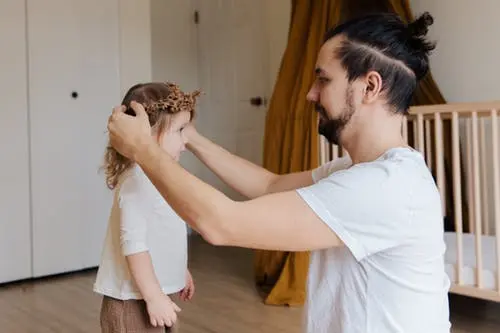How Can I Have a Child-Centered Divorce?~ 3 min read
Going through a divorce is tough, especially when there are children involved. Choosing a child-centered divorce approach involves prioritizing your child’s needs over personal desires and conflicts. Here are some steps you can take to ensure your divorce is centered around the well-being of your children.
- Emotional Commitment: The first and most crucial step is to emotionally commit to a child-centered divorce. Recognize the importance of putting your child’s needs first, even when facing your own emotional challenges. This commitment sets the tone for the entire process.
- Mediation Over Litigation: Opt for Mediation or Collaborative Divorce instead of litigation. These divorce processes encourage open communication, negotiation, finding common ground and allow you and your spouse to have a say in the decisions, fostering a cooperative environment that benefits your child.
- Open-Minded Collaboration: Approach the divorce process with an open mind. Be receptive to various ideas and creative solutions that may not align with your initial preferences. A child-centered divorce requires flexibility and a willingness to consider alternatives for the well-being of your child.
- Willingness to Compromise: Successful child-centered divorces involve compromise. Be willing to give up certain desires or make concessions for the greater good of your child. This not only benefits the child but can also lead to long-term mental health benefits for you as co-parents of your child after the divorce.
- Involvement of Professionals: Enlist the help of professionals who specialize in child-centered divorce, such as divorce coaches and child specialists. These neutral parties can guide the process, ensuring that the child’s needs are at the forefront. Consider involving a child specialist to facilitate communication with the child and incorporate their thoughts and desires into the proceedings.
- Child’s Voice in the Process: Recognize the importance of giving your child a voice in the divorce process. Depending on their age, involve them in discussions about their feelings and thoughts. A child specialist can act as a non-biased intermediary, helping to convey the child’s needs and desires that you both may not be aware of.
Advantages of a Child-Centered Approach
- Child Well-being: The primary advantage is ensuring that the child emerges from the divorce process unharmed. Prioritizing their needs creates a healthier environment for their mental well-being.
- Long-Term Cost Savings: Despite potential monetary concessions, a child-centered divorce can lead to long-term cost savings. Investing in your child’s well-being now may prevent future issues that could be more financially burdensome.
- Parents’ Mental Health: A child-centered divorce isn’t just beneficial for the child; it contributes to the mental health of the parents. While compromises may be made, the overall family dynamic post-divorce and your well-being are likely to be more positive in the long run.
In the midst of divorce, choosing a child-centered approach requires commitment, collaboration, and a genuine focus on your child’s needs. By following these steps and involving professionals, you can navigate the challenging process with the best interests of your child at heart, fostering a healthier future for everyone involved.
Contact Family Ally Today
If you have questions or need legal assistance regarding divorce or any other family law matter, please contact Jennifer Piper at 314-449-9800 to schedule a consultation. Family Ally is located at 130 S. Bemiston Ave., Suite 608, St. Louis, MO 63105.
Jennifer R. Piper is a family law attorney, mediator, and parenting coordinator with more than 20 years of experience serving families in the St. Louis area. She is certified as a Guardian ad Litem and frequently appointed by courts to represent children in high-conflict cases. Jennifer is a former Chair of the Family and Juvenile Law Section of the Bar Association of Metropolitan St. Louis and an active leader in local and state bar organizations.
Her professional recognition includes being named to The Best Lawyers in America® (2017–2025), Missouri Super Lawyers (2021–2024), and receiving a Women’s Justice Award from Missouri Lawyers Weekly. Jennifer also holds an AV Preeminent rating from Martindale-Hubbell. She regularly speaks on family law topics and has helped shape family court procedures through her service on multiple committees.






